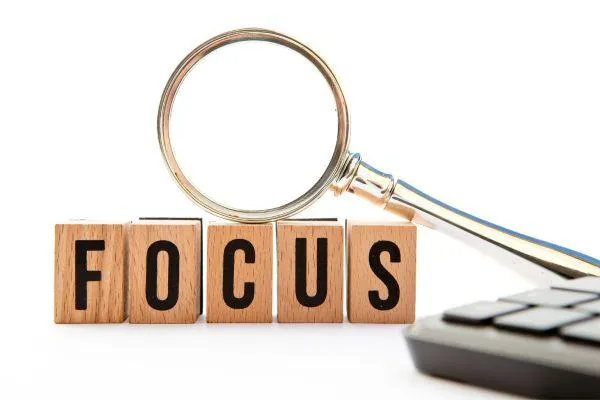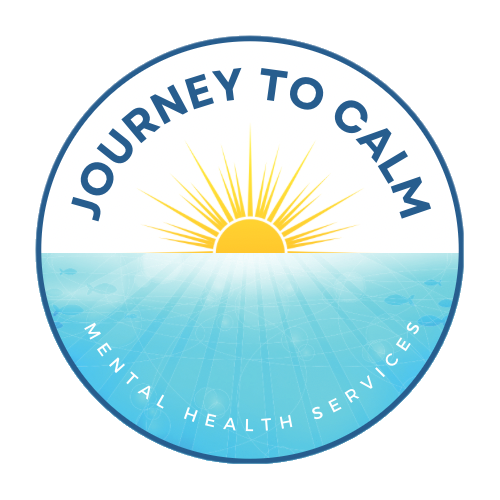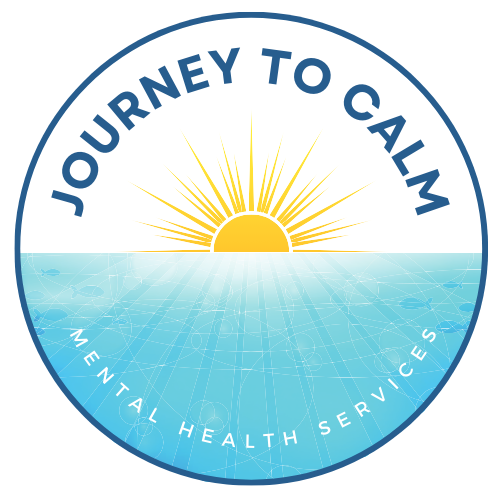Blog
Blog

Can Mindfulness Improve Focus? Unlock Your Brain’s Full Potential
Do you ever feel like your mind is all over the place? Between endless notifications, a never-ending to-do list, and constant distractions, staying focused can feel impossible. Mindfulness can help you with that. Mindfulness is not just about stress relief or relaxation. It’s also a powerful way to sharpen your focus and get more out of your day. Let’s dive into how mindfulness can help you with those focus difficulties.
Why Is Focus So Hard These Days?
Modern life often takes away our focus. Our brains are bombarded by information 24/7, and we’ve become conditioned to try to multitask. However, multitasking doesn’t actually make you more productive - it splits your attention and drains your mental energy.
Mindfulness is the opposite of multitasking. Instead of scattering your attention, it teaches you to focus on one thing at a time. The result is a clearer, more productive mind.
How Does Mindfulness Boost Focus?
Mindfulness is like a workout for your brain. Here’s how it builds your focus muscles:
Strengthening Attention
When you practice mindfulness, you repeatedly bring your mind back to the present moment. This strengthens your ability to concentrate on what truly matters.
Just like lifting weights builds physical strength, mindfulness strengthens your attention span. When you focus on your breath, a sound, or a specific sensation, your mind will naturally wander. But each time you notice this and gently bring your focus back, you’re performing a mental exercise that enhances your ability to stay on task. Over time, this repeated practice helps you concentrate more effectively on what truly matters, whether it's work, conversations, or creative projects.
Reducing Mental Clutter
Do you ever feel like your brain is a tangled mess of thoughts? Racing ideas, unfinished to-do lists, and lingering worries can make it difficult to focus. Mindfulness acts as a mental decluttering tool, helping you quieten unnecessary noise. By bringing your awareness to the present moment, you learn to let go of distractions and create space for clarity. This mental clarity makes it easier to direct your energy toward the task at hand rather than being pulled in a dozen different directions.
Enhancing Self-Awareness
Mindfulness helps you notice when your mind starts to wander, so you can gently guide it back to the task at hand.
A wandering mind is one of the biggest obstacles to focus. The problem is, we often don’t even realize when we’ve lost track of our attention. Mindfulness sharpens your self-awareness, helping you catch yourself in the act of distraction. The more you practice, the quicker you become at noticing when your mind drifts - and the better you get at redirecting your focus before losing too much time.
Training Emotional Regulation
Stress and frustration are major focus killers. Mindfulness teaches you to handle these emotions calmly, so they don’t derail your productivity.
Emotions like stress, frustration, and anxiety can make it nearly impossible to focus. If you’ve ever struggled to concentrate because you’re worried about an upcoming deadline or replaying a past mistake, you will know how powerful emotions can be in hijacking your attention. Mindfulness teaches you how to observe these emotions without being overwhelmed by them. Instead of reacting impulsively, you develop the ability to acknowledge your feelings, let them pass, and return your focus to the present moment. Over time, this practice helps you stay calm under pressure and maintain concentration even in challenging situations.

The Science Behind Mindfulness and Focus
Mindfulness isn’t just a trendy wellness practice - it’s backed by solid science. Researchers have spent years studying its impact on the brain, and the results are clear. Mindfulness has a measurable effect on cognitive function, attention, and even the physical structure of the brain itself. Here’s what the research reveals:
Improved cognitive function
Your brain is like a muscle - the more you train it, the better it functions. Studies show that mindfulness meditation enhances working memory, which is crucial for processing and retaining information. It also sharpens decision-making skills by improving your ability to assess situations clearly and respond thoughtfully rather than react impulsively. Whether you’re studying for an exam, making a big career decision, or just trying to remember where you left your keys, mindfulness helps keep your brain in top shape.
Increase sustained attention
Ever struggle to stay focused on a task for an extended period? You’re not alone. Our modern world is full of distractions, making it harder than ever to concentrate. By training your brain to stay present, mindfulness helps you maintain attention for longer periods.
Boost neuroplasticity
One of the most fascinating discoveries in neuroscience is that our brains are not fixed - they’re constantly changing. This concept, known as neuroplasticity, means that we can rewire our brains through repeated behaviours and experiences. Mindfulness meditation has been shown to strengthen areas of the brain linked to attention, self-control, and emotional regulation. Over time, this leads to improved focus, better impulse control, and a greater ability to manage stress - all of which contribute to enhanced productivity and mental clarity.
Mindfulness helps your brain work smarter, not harder.
Everyday Mindfulness Practices to Sharpen Your Focus
You don’t need to spend hours meditating to experience the benefits of mindfulness. Even small, simple practices can significantly improve your focus. Try incorporating these mindfulness techniques into your daily routine:
Focused Breathing
Your breath is a powerful tool for training your mind to stay present. Take just one minute to focus solely on your breathing. Inhale deeply through your nose, noticing the cool sensation of the air. Exhale slowly, feeling the warmth as it leaves your nostrils. If your mind wanders, which it probably will, gently guide it back to your breath without judgement. This simple practice strengthens your ability to concentrate and helps reset your focus throughout the day.
One-Task Rule
Multitasking may seem productive, but it actually scatters your attention and reduces efficiency. Instead, commit to doing one thing at a time with full awareness. Whether you're answering emails, eating lunch, or having a conversation, give the task your complete focus. Notice the details—the way your fingers move on the keyboard, the flavours in your food, or the tone of someone's voice. You’ll find that not only do you get more done, but the quality of your work and experiences improves as well.
Mindful Breaks
When your focus starts to slip, don’t just push through - pause for a mindful moment. Step away from your screen, stretch, or take a short walk. The key is to fully immerse yourself in the experience. Feel your muscles lengthen as you stretch, notice the sensation of your feet against the ground as you walk, or take a few deep breaths and observe how your body responds. These short, intentional breaks refresh your mind and help you return to your work with renewed focus.
Start Your Day With Intention
Before diving into the chaos of the day, take a few moments to set a mindful intention. Ask yourself, What is the most important thing I need to focus on today? Rather than getting lost in a flood of distractions, this practice helps you prioritize what truly matters. You can even write it down as a reminder to keep your attention anchored throughout the day.

How Mindfulness Creates Long-Term Focus
One of the most powerful aspects of mindfulness is that its benefits compound over time. Just like building muscle through consistent exercise, the more you practice mindfulness, the stronger your ability to focus becomes. Over weeks and months of regular practice, you’ll start to notice significant improvements in how you handle distractions, pressure, and tasks that require deep concentration. Here’s how mindfulness fosters long-term focus:
Block out distractions
In today’s fast-paced world, distractions are everywhere. Mindfulness strengthens your ability to recognize distractions without automatically reacting to them. Instead of instinctively checking your phone the moment it buzzes, you’ll develop the awareness to pause, assess whether it’s truly important, and stay focused on the task at hand. Over time, this skill helps you maintain deep concentration for longer periods.
Stay calm under pressure
Stress and anxiety can quickly derail your focus, making it difficult to think clearly and make sound decisions. Mindfulness trains your brain to remain composed even in high-pressure situations. By practicing present-moment awareness, you become less reactive to stressors and more capable of handling challenges with a clear, steady mind.
Work through tasks with greater efficiency and precision
Have you ever started a task only to find yourself struggling to stay engaged or make meaningful progress? Mindfulness enhances your ability to approach tasks with full attention, allowing you to work more efficiently and with greater accuracy. Instead of rushing through work while juggling multiple thoughts, you learn to direct your focus entirely on what you’re doing in the moment. The result? Fewer mistakes, better problem-solving, and a greater sense of accomplishment.
Why Focus Matters
Focus isn’t just about getting more done - it’s about experiencing life more fully. When you’re truly present, everything becomes more meaningful. Conversations deepen, work feels more fulfilling, and even the smallest moments take on greater significance.
Richer Conversations
Have you ever been in a conversation where your mind was elsewhere - thinking about your to-do list, checking your phone, or waiting for your turn to speak? When you practice mindful focus, you become fully engaged in the present moment, truly listening to the person in front of you. This not only strengthens your relationships but also makes your interactions more genuine and rewarding.
More Fulfilling Work
When you give your full attention to what you’re doing, your work improves, mistakes decrease, and you feel a greater sense of accomplishment. Instead of feeling like you’re constantly rushing through tasks, you experience the satisfaction of doing things well.
Appreciating Life’s Small Moments
Life isn’t just about the big milestones - it’s made up of countless small moments that often go unnoticed. The warmth of the sun on your skin, the taste of your morning coffee, the laughter of a loved one. When you’re focused and present, you experience these details in a way that makes life richer and more enjoyable.
At its core, focus isn’t just a productivity tool; it’s a way to live more intentionally, connect more deeply, and find joy in everyday life.
Ready to Focus Using Mindfulness?
Improving your focus doesn’t require a complete lifestyle overhaul - it just takes small, mindful changes. If you’re ready to take the next step, I’ve got the perfect resource for you: a free e-guide, “5 Ways to Transform Your Life Using Mindfulness.”


